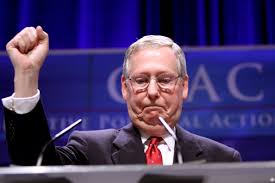
Courtney Brunson is a student at Harvard Law School and member of the Harvard Legal Aid Bureau.
As Labor Day weekend marked the beginning of the fall 2020 presidential campaign season, President Donald Trump and Democratic presidential nominee Joe Biden began to make their pitches to the American people about how they would best represent workers and improve the American economy. While Trump argued that a Biden White House would “destroy this economy” and bragged about the unemployment rate, Joe Biden argued both that Trump’s policies have been driven by his greed and support for the wealthy and that his response to the global pandemic has led to more economic devastation. In contrast, Vice President Mike Pence toured Dairyland Power Cooperative, a power company, while Democratic vice-presidential nominee, Senator Kamala Harris visited an International Brotherhood of Electrical Workers training facility. Notably, while Senator Harris wore a mask and maintained a social distance from the workers, Pence walked amongst the workers and did not wear a mask.
On Capitol Hill, Senate Majority Leader Mitch McConnell announced yesterday that he will schedule a vote for a coronavirus relief bill he calls a “targeted relief package” this week. This legislation will include some key priorities including $500 billion in support for small businesses, enhanced unemployment insurance, child care, the post office, and primary and secondary educational institutions. However, this legislation is not expected to advance because McConnell has neither the votes of Senate Republicans nor those of the House and Senate Democrats. As you may recall, House Democrats passed a $3 trillion measure in May that funded many of the priorities stated above in addition to providing another round of stimulus checks, financial assistance assistance to hospitals, and funding for expanded coronavirus testing. In the midst of this fight, the Congress is also facing a government shutdown at the end of the month.
Conservative commentators have also used Labor Day as an opportunity to argue that Republicans and conservatives are pro-worker. One such proponent is Oren Cass, a former advisor to Mitt Romney on both of his presidential campaigns. He interviewed with Eric Levitz of New York Magazine yesterday and argued that all workers in the country should have collective bargaining rights. He also discussed a new think tank he has established alongside other well known conservatives called American Compass. This organization seeks to develop an agenda that affords workers with “the same respect” that Republicans extend to business owners as well as gives workers collective bargaining rights and a “seat at the table.” Signers of this organization include Senator Marco Rubio, former Attorney General Jeff Sessions, and former Undersecretary of the Department of Labor, Richard Schubert.
There have been some victories for workers who have continued to push their companies to prioritize diversity and inclusion at all levels as the country continues to grapple with police brutality and systemic racism. First, as a follow up to previous News & Commentary posts (here and here) regarding worker responses to incidents of racial and gender discrimination at Pinterest, Pinterest recently announced that it has brought in a new head of inclusion and diversity. Tyi McCray, a Black woman, previously worked at AirBnb in both D&I and government affairs capacities. Responding to one of the critiques levied at the company regarding their prioritization of diversity issues, the company has announced that McCray will be reporting directly to the CEO. In addition, California’s state legislature has passed AB979, a bill that would require public companies based in the state to have at least one person from an underrepresented group in their Board of Directors. If the board has between four and nine directors, the requirement increases to two members. Boards with at least nine or more directors must have three. The bill defines underrepresented as someone who “self-identifies as Black, Latinx, Asian, Pacific Islander, Indigenous and/or as gay, lesbian, bisexual or transgender”.
There has also been a victory for workers in the courts. Yesterday, Judge Gregory H. Woods of the U.S. District Court for the Southern District of New York (SDNY) shot down elements of President Trump’s joint employer regulation as illegal. Judge Woods said that the Department of Labor’s regulation, which limits the scenarios in which businesses can be held liable under the Fair Labor Standards Act (FLSA), was arbitrary and capricious in nature. This rule emerged as corporations including McDonald’s and Amazon faced lawsuits from their workers that alleged that they, alongside their third-party contractors, were responsible for unpaid minimum wages and overtime. Seventeen states and the District of Columbia sued the Administration back when the Labor Department’s rule took effect in February. It is worth noting, however, that the judgment focused solely on the agency’s test for vertical employment (when a worker enters an employment relationship with one company but is economically dependent on another) but not for horizontal employment (in which a worker has separate employment relationships with multiple businesses that are associated with one another).






Daily News & Commentary
Start your day with our roundup of the latest labor developments. See all
July 3
California compromises with unions on housing; 11th Circuit rules against transgender teacher; Harvard removes hundreds from grad student union.
July 2
Block, Nanda, and Nayak argue that the NLRA is under attack, harming democracy; the EEOC files a motion to dismiss a lawsuit brought by former EEOC Commissioner Jocelyn Samuels; and SEIU Local 1000 strikes an agreement with the State of California to delay the state's return-to-office executive order for state workers.
July 1
In today’s news and commentary, the Department of Labor proposes to roll back minimum wage and overtime protections for home care workers, a federal judge dismissed a lawsuit by public defenders over a union’s Gaza statements, and Philadelphia’s largest municipal union is on strike for first time in nearly 40 years. On Monday, the U.S. […]
June 30
Antidiscrimination scholars question McDonnell Douglas, George Washington University Hospital bargained in bad faith, and NY regulators defend LPA dispensary law.
June 29
In today’s news and commentary, Trump v. CASA restricts nationwide injunctions, a preliminary injunction continues to stop DOL from shutting down Job Corps, and the minimum wage is set to rise in multiple cities and states. On Friday, the Supreme Court held in Trump v. CASA that universal injunctions “likely exceed the equitable authority that […]
June 27
Labor's role in Zohran Mamdani's victory; DHS funding amendment aims to expand guest worker programs; COSELL submission deadline rapidly approaching